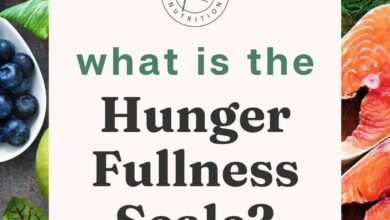Plant-Based Meats: Potential or Problematic?

Vegan and vegetarian food options have come a long way in recent decades and there are a number of new products cropping up that come closer to the look, feel and flavor or meat while remaining plant based. But they beg the question, can these new meat alternatives be part of a healthy diet?
People have many different reasons why they choose to avoid meat and animal-based foods. For some, environmental and moral issues are a factor. For others, it may be a nutritional decision or because they just don’t enjoy the taste or texture of meat. And there are some people who don’t react well to animal protein.
Unless you just don’t like the experience of eating meat, if you are a vegetarian or vegan, you may miss the flavor of meat and certain foods that contain meat. You wouldn’t be the only one! After all, that’s why these plant-based meat alternatives have taken off.
Meat Alternatives Come a Long Way
Although tofu, one of the oldest and most widely used alternatives to meat, has been consumed for thousands of years, John Harvey Kellogg (yes, that Kellogg) triggered new U.S. interest in vegetarianism with his meat substitutes made with potato, peanuts and grains in the late-1800s.
Since then, the curiosity around meat alternatives has led to a number of generations of non-animal “meat” options, including Quorn in the 1960s, the Gardenburger and Boca Burger in the 1980s and more recently, Beyond and Impossible “meats.” Some of these are even available in popular fast food chains around the country and the world.
Some of these newest forms of alternative meat are the closest we’ve seen to looking and tasting like actual meat. They even offer the experience of having your rarer burgers “bleed.”
But are these foods, which do offer a more similar experience, giving you the same nutrition as meat? Are they healthy to eat as a consistent part of your diet?
What’s In My Burger?
Let’s delve into the ingredients of some of the most popular plant-based meats.
It’s not surprising that most of the products offered are high in protein, considering they are meant to be a substitute for high-protein meats. The base of that protein though, varies greatly by company and product.
Impossible beef lists its ingredients as water, soy protein concentrate, sunflower oil, coconut oil, natural flavors, methylcellulose, cultured dextrose, food starch modified, yeast extract, soy leghemoglobin, salt, mixed tocopherols, L-tryptophan and soy protein isolate.
Additionally, zinc gluconate, niacin, thiamine hydrochloride, pyridoxine hydrochloride, riboflavin and vitamin B12 have been added.
As with a large number of these types of products, soy is the main ingredient and source of protein. You’ll also notice that it has been fortified with nutrients naturally found in meat but not in the plant-based ingredients. It’s important to note that no less than 14 ingredients make up what would be just one if compared to ground beef.
So why is soy used so widely in vegetarian and vegan food? For one, it has a mild flavor that can be made to taste like whatever is added to it. Secondly, it is cheap to grow. And lastly, it is both high in protein and contains all essential amino acids, making it a complete protein. (There is some question whether soy offers the body the amino acid tryptophan.)
But there can be a dark side to soy, especially processed, non-fermented and non-organic soy.
Soy is often genetically modified and high in pesticides and herbicides. (Note: a number of meat-alternatives do make it clear that they are non-GMO, but that does not mean they are organic.) Soy contains both phytoestrogens, which can mimic the body’s natural estrogens, and phytic acid, which can inhibit mineral absorption.
Soy protein isolate and concentrate are two common forms of soy found in processed foods and are themselves highly processed to remove fat and carbohydrates.
Similar to Impossible, Daring plant chicken pieces contain water, soy protein concentrate, vegetable oil (sunflower and/or canola), salt, natural flavor and spice.
Once again, soy is the made source of protein. Plus, this product contains vegetable oils, which can promote inflammation, and natural flavor, an ingredient that does not require specification and can include a number of items, including some common allergens.
There are still a number of other meatless products that do not contain soy. But does that mean they are a healthy option?

Beyond Meat contains water, pea protein, expeller-pressed canola oil, refined coconut oil, rice protein, natural flavors, dried yeast, cocoa butter, methylcellulose, potato starch, salt, potassium chloride, beet powder color, apple extract, pomegranate concentrate, sunflower lecithin, vinegar, lemon juice concentrate, vitamins and minerals (zinc sulfate, niacinamide, pyridoxine hydrochloride, cyanocobalamin, and calcium pantothenate).
Once again we find vegetable oil and added nutrients. Additionally, the base protein in this product is pea protein. Although it contains 16g of protein, peas are not a complete protein because they do not include all essential amino acids.
Quorn meatless vegan fillets also contain pea protein but prides itself on mycoprotein being a main ingredient. What is mycoprotein? It comes from the fungus Fusarium venenatum that is known to be high in protein. Although nutritionally not problematic, some people do have serious adverse reactions to mycoprotein, including vomiting, nausea, hives and anaphylaxis.

The latest technology in plant-based meat alternatives is to have a product that imitates the texture, flavor and even bleeding that you can get from animal muscle. In order to recreate that, companies like Impossible ferment genetically modified yeast combined with DNA from soy plants.
Because this is a newer food technology, we may not yet know the ramifications of this process.
Overly Processed Problems
As mentioned, in order to more closely match the nutrient profile of meat, many plant-based meats have added vitamins and minerals, namely B vitamins. While naturally nutrient-rich foods are an excellent part of any diet, fortified processed foods work a bit differently.
This is because synthetic forms of nutrients are often used, which can be problematic compared to food-based nutrients.
In addition, nutrients (including the B vitamins) work synergistically when found together in foods but these benefits do not extend to the foods they are added to because the forms and ratios are different.
As with a large majority of processed foods, plant-based meat alternatives are usually high in added salt. The products mentioned start at 200 mg of sodium per serving and only go up from there, with Beyond Meat coming in at 500mg per serving. It may not sound like a ton but that is before adding any seasoning. Animal meats on the other hand, allow you to control the amount of sodium added. And to compare, a servings of Lay’s potato chips contain 170mg of sodium.
Meatless Options
None of this is to say that you must change your diet to include meat in order to eat healthy. But processed meat alternatives may not be the best option if you have decided to avoid meat.
There are a number of unprocessed whole foods that, while not mimicking meat, will taste delicious, include essential amino acids and avoid the pitfalls of processed foods.
Combining certain protein-rich foods, like rice, beans, oatmeal, legumes and seeds, provide the perfect combination of all essential amino acids.
Quinoa, hemp, buckwheat, amaranth and chia seeds are themselves complete proteins. Unfortunately, although they contain all essential amino acids, they cannot compare to meat in terms of grams of protein. One cup of chicken contains 38g of protein, while the same amount of quinoa has a mere 8g. If you do not follow a vegan diet, eggs and dairy are protein-rich foods. And soy is an option, if you look for organic, fermented options and eat it in moderation.
If you do decide to include plant-based meats in your diet, the most important thing is to read the labels in order to understand the ingredients and make informed decisions.
To discover just how delicious a vegan meal can be while avoiding processed foods, check out this recipe.
About the author: Maya Strausberg earned her Master Nutrition Therapist certification from NTI before starting her nutrition therapy private practice. She now offers writing and editing services for nutritionists and other health practitioners around the world through her business, Family Tree Nutrition.
Images:
Image by burdgerhl from Pixabay
Photo by LikeMeat on Unsplash
Image by Michael Wave from Pixabay
Photo by LikeMeat on Unsplash
Source link
#PlantBased #Meats #Potential #Problematic



